‘I’ve lost $50,000 in two days’: Inside southwest Sydney’s ‘parasitical’ pokie mecca
A young Sydney man has revealed the eye-watering amount of money he lost on the pokies — and what he told his wife when he got home.
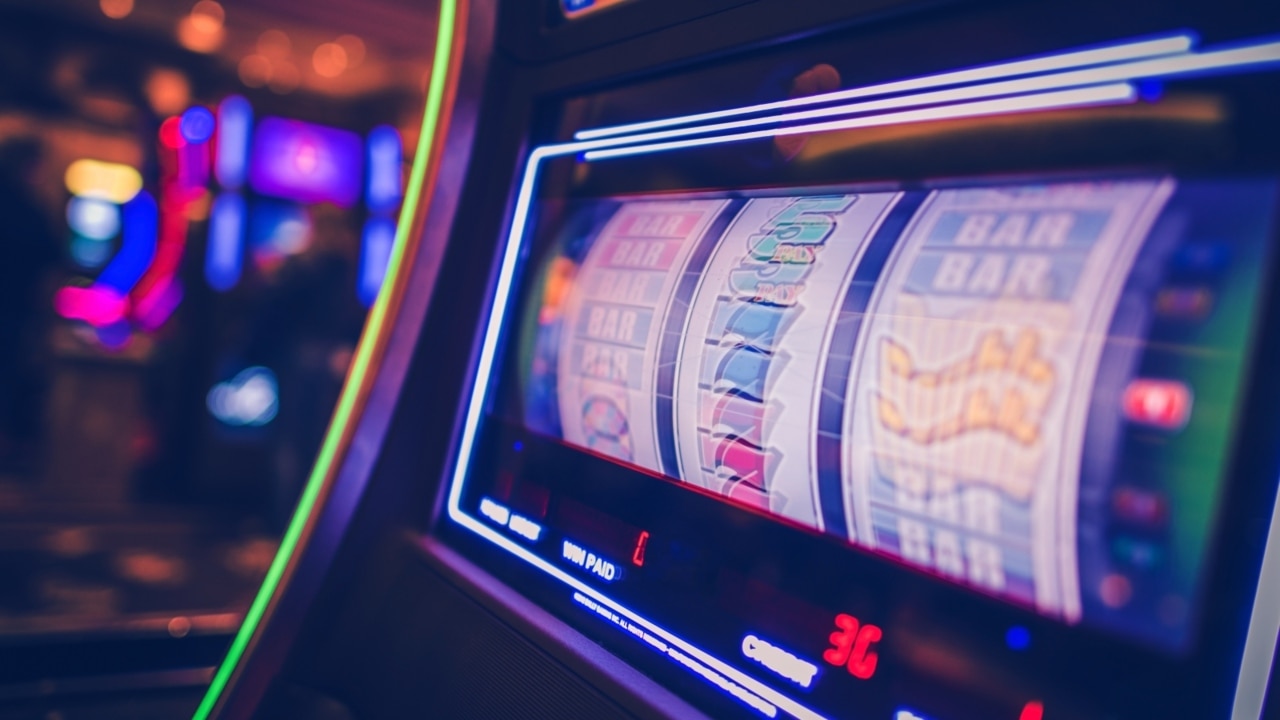
In the southwestern Sydney suburb of Mount Pritchard, across the road from the colourful gates of the Mingyue Lay Buddhist Temple, another religious institution towers over the modest red-brick homes — a pokie mecca.
Mounties, an enormous glass and steel building with a swooping curved entrance and enough parking to rival Disneyland, describes itself as a “community-centred club” that uses “our success to help improve our members’ lives and the southwest Sydney community”.
The sparkling interior boasts six restaurants and cafes, 13 bar outlets, multiple function spaces, an indoor children’s play centre and even a fully fledged gym — but the beating heart of it all, drawing an endless stream of locals, seven days a week, is its 615 electronic gaming machines.
At 10am on a weekday morning, the cavernous casino-style gaming room is already starting to fill up with a diverse clientele.
“It’s always busy in here,” says an older blonde woman playing the Grand Star Sapphire machine — $19,000 grand jackpot! — as the alarm bell of a pokie feature rings out from nearby.
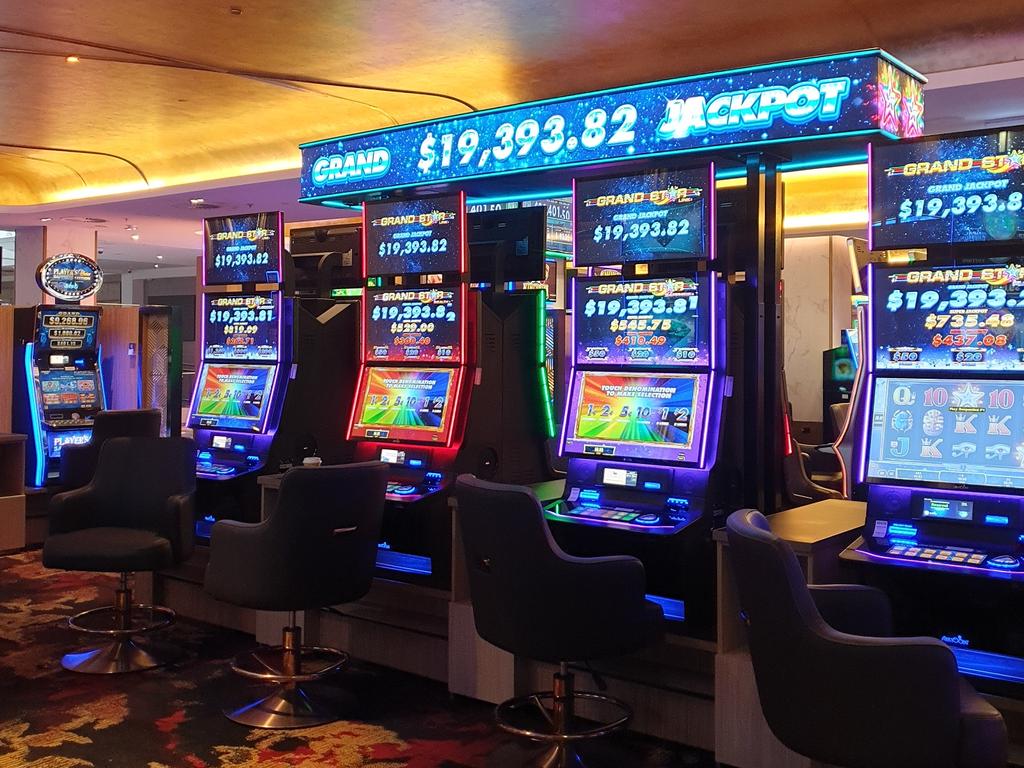
She warns the spot next to her might be tapped out. “A guy just won $600 on that machine — he took it and ran,” she says.
As club staff hurry back and forth with drinks and empty glasses, retirees in jeans and sneakers and white-haired ladies with walking sticks perch at machines with names like Cash Express and Player’s Choice.
At an Aztec-themed machine, which erupts with the sound of tribal drums every few seconds, a middle-aged Asian woman sits down with a takeaway coffee and inserts a handful of $50 notes, betting $2 per spin.
In the vast semi-outdoor gaming area, complete with a soothing artificial waterfall, an elderly bald man smoking a cigarette winces as he hits play. “I reckon they’ve put the thumb screws on us today,” he confides, gesturing to the unlucky row of machines.
By midday the pokies room is bustling, with a decent proportion of the machines occupied — from young tradies in workwear to elderly people being pushed on wheelchairs.
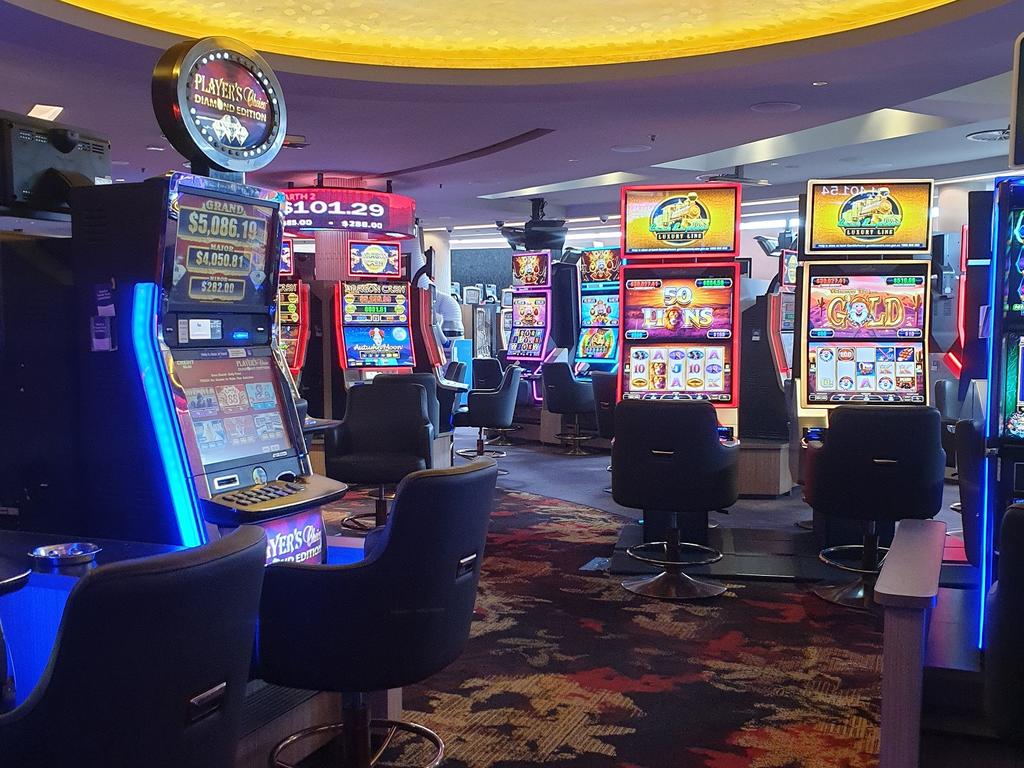
‘Lost $50,000 in two days’
Located within the Fairfield local government area, which is home to the most disadvantaged suburbs in Sydney, Mounties holds the dubious honour of being the club with the most profitable pokies in the state, according to figures from Liquor and Gaming NSW.
In 2022, Mounties Group raked in more than $106 million in poker machine revenue across its 10 locations. While its annual report does not break down revenue per venue, the vast majority comes from the flagship Mount Pritchard club.
“I think it’s the noise,” said John, a recovering gambling addict, who asked us not to use his full name.
“If I go and sit down on a machine and there’s no sound, I don’t stay on it. It’s hard because I look at it and go, well I’m addicted so I’m biased, but they’re built to get people addicted to them — they’re horrible things.”
Now in his 40s, the successful small business owner first got hooked on pokies as a teenager, after he snuck into a pub and won $1500 on a machine. “I went, f**k how easy is this?” he said. “I’ve had dramas with it ever since.”
John, who has been cold turkey since late last year, said when he was in one of his “bad phases” he would be at the pokies every day “until I ran out of money”.
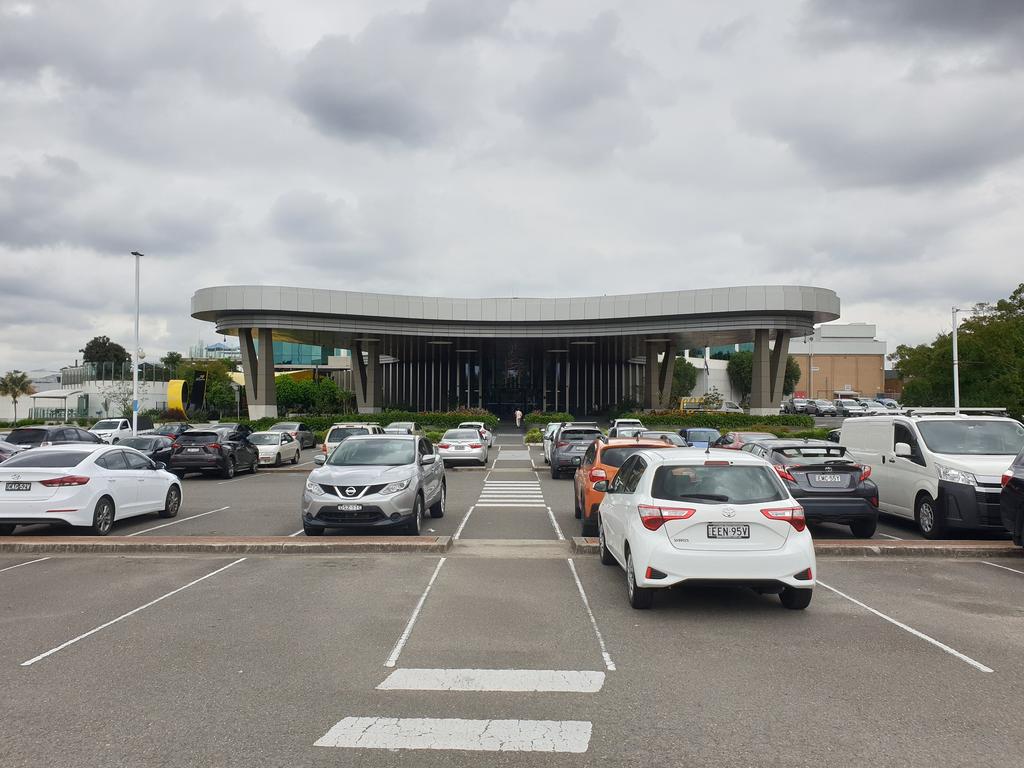
He would play at clubs and pubs all over the state, including Mounties, while on the road for work. Running his own business means he has “access to large sums of money that people don’t know about”.
“My gambling is literally, if I’ve got money that no one knows about I’ll stop and gamble,” he said.
“I max bet everything. I wouldn’t go unless I had $1000 on me — I’ve lost $50,000 in two days before. The time I lost $50,000 my wife had no idea. I vividly remember driving home thinking ‘you’re a f**king idiot’. I got home and pretended I had a great day at work. I think gambling’s one of the worst addictions because it’s so well hidden — you can be a full-blown addict and no one knows.”
He stresses that “in all other aspects of my life I’m really happy”.
“I consider myself a very fortunate, very lucky bloke — I don’t go because I’m depressed or because I’m sad, obviously there’s something there that makes me want to gamble, but I’ve never been able to work out what it is,” he said.
“I wish I was one of those people that could throw $20 in and sit for an hour, chat to a mate and leave. I don’t know many people that can do that. The pubs I used to go to, it was always the same people, and most of them always played the same machine — most would have associated a good win with that machine and go ‘that’s my lucky machine’.”
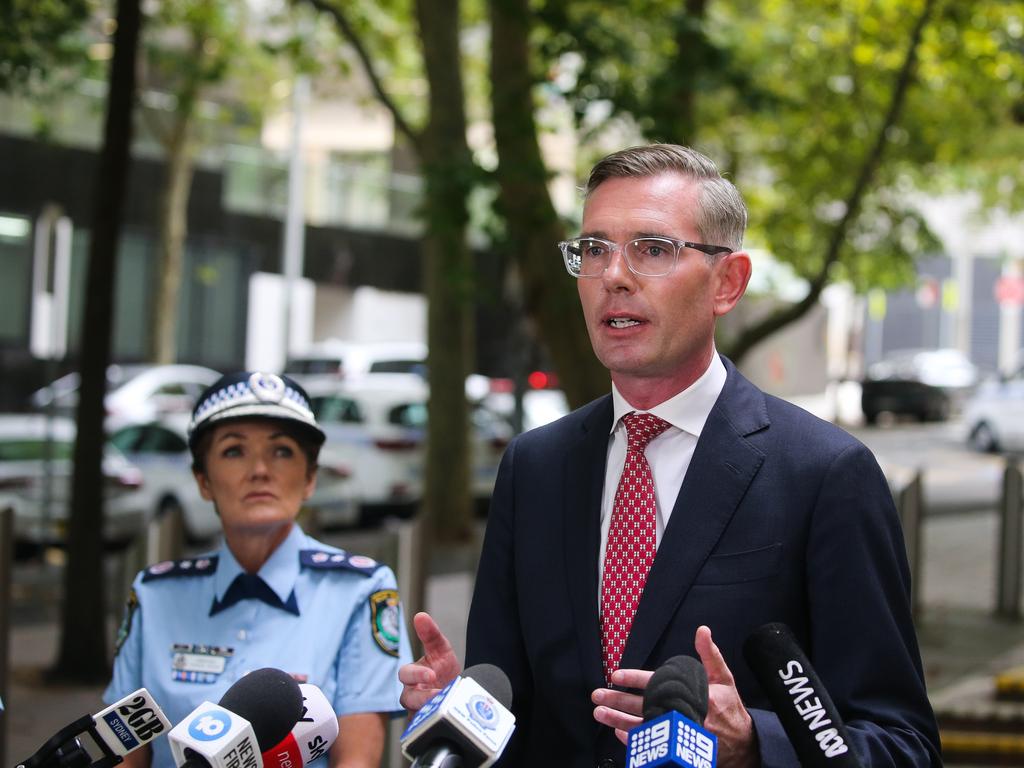
Pokie reforms pass cabinet
Last month, NSW Premier Dominic Perrottet unveiled his government’s proposal for Australia’s biggest ever gambling reforms, which will see all poker machines become cashless by 2028.
Under the plan, aimed at stopping criminal money laundering and helping those struggling with addiction regulate their spending, gamblers will be issued cashless gaming cards and will need to impose their own daily loss limit.
“The harm minimisation experts have told me the number one thing that you can do is to ensure that when a problem gambler goes into a pub or club, there is a limit that they have set, and they cannot change that for seven days,” Mr Perrottet said.
“That is the advice that I’ve received and that is the advice the NSW government has implemented. It’s not for me as Premier to arbitrarily put in a cap — everyone’s personal circumstances are different.”
ClubsNSW said it was “concerned” about the “significant costs and technical challenges” associated with the Coalition’s proposal.
“We’re particularly concerned about the implications for small, regional clubs and the impact this will have on jobs across the industry,” the industry body said in a statement last month. “ClubsNSW is committed to working with whomever wins the March election to combat problem gambling and keep criminals out of gaming venues.”
But John welcomes the changes. “It doesn’t stop social gamblers, they could still go and put $100 on a card and have a good night,” he said. “The people that can’t stop when they need to stop, it’ll help them.”
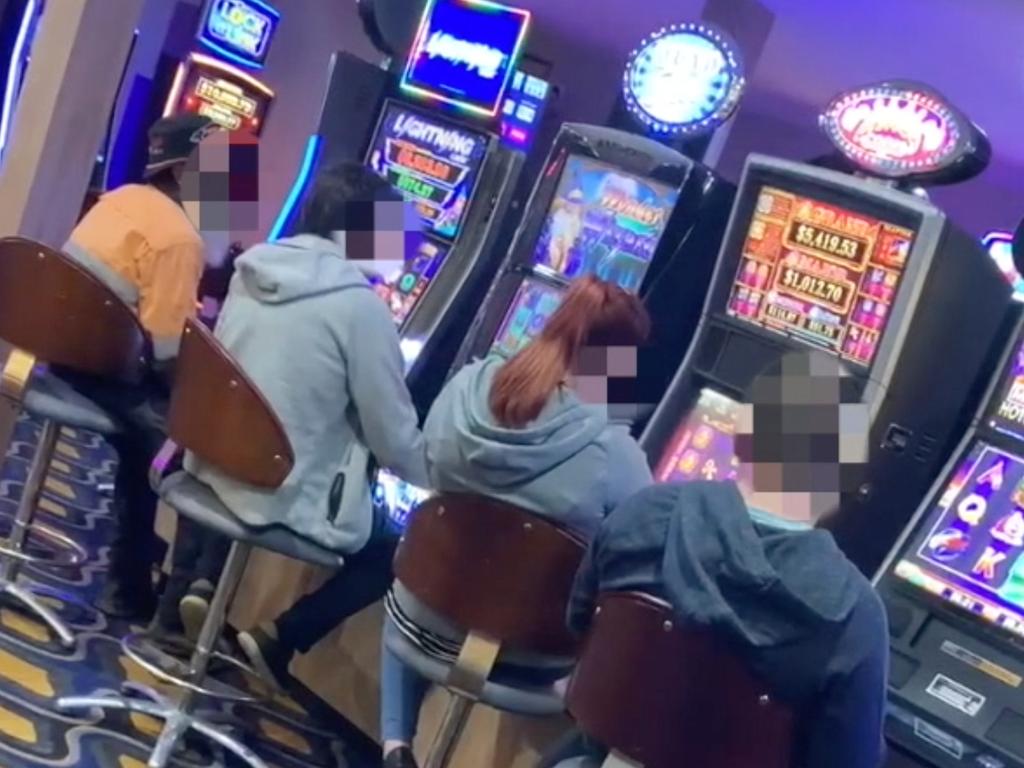
‘Suicides, crime, bankruptcy’
Reverend Tim Costello, spokesman for the Alliance for Gambling Reform, said over the years state and local governments had become addicted to funding greenfield development in places like southwest Sydney through pokies revenue.
“Of course pokies didn’t do the same damage when you’re putting two shillings in and pulling a lever,” he said.
“But with digitisation we went from a ball and musket to a semiautomatic rifle, and the regulation and government planning did not keep up with the technology.”
Governments licenced “far too many” pokies in order to fund services “on the cheap” and grow suburbs while ignoring the “predatory model of damage” that has now become embedded in some of the poorest communities.
“That’s how NSW got itself into this mess — it’s failed planning right from the start,” he said.
Data from Liquor and Gaming NSW released in January showed total community losses increased in the third quarter of 2022 to $2.18 billion from 86,568 poker machines — with daily losses increasing to $23.7 million.
“The practical effect of course is that in the eastern suburbs you buy shares in Tabcorp or gambling — you don’t play the pokies — and you always win,” Rev Costello said.
“In the poorer areas and particularly vulnerable migrant communities … the damage is unbelievable. Two Productivity Commission reports showed 62 per cent of revenue going through pokies comes from addicted people or those developing a habit. That simply spells suicides, crime, bankruptcy, kids going hungry, domestic violence.”
Rev Costello said clubs like Mounties that operated as “mini-casinos” were “parasitical” entities that had “poisoned the soil” of community, sport and recreation.
“There’s certainly a trickle back but it’s minuscule,” he said.
“Pokies are zero-sum — if I have a win it’s only because someone’s lost. Therefore the real pokies story is the people in the poorest suburbs losing massively so state government can win, and captains of these clubs can pay themselves $1 million to $1.5 million a year.”
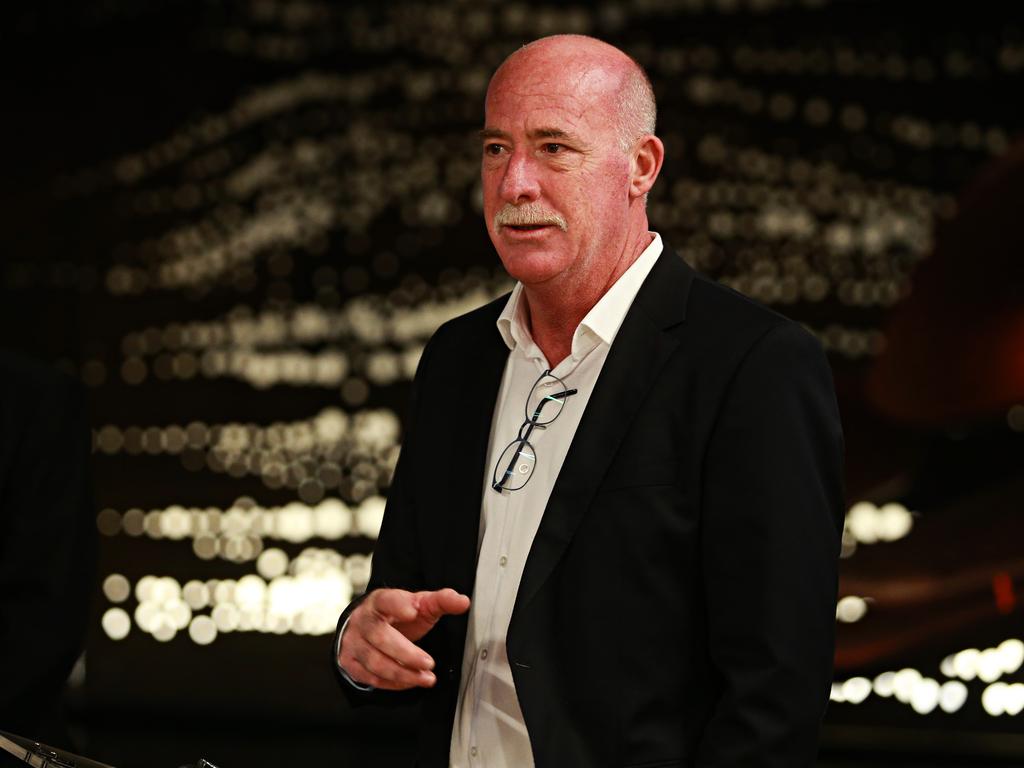
Mounties ‘gave back $209 million’
Mounties Group chief executive Dale Hunt rejected that characterisation.
He said an independent report commissioned by Mounties found the group had contributed $209 million to the local area last year.
“Last year we paid $37 million in tax, $42 million in wages and salaries — our club alone has 1100 local staff,” he said.
“Capital investments in the last 12 months, we’ve opened three general practice clinics, homecare, community nursing, a specialist medical centre, we spent $57 million investing in those things. We’re the major sponsor of CareFlight helicopters, we provided an entirely new building for the Ted Noffs Foundation, we’ve got 54 social inclusion clubs which bring people together as a community.”
Mr Hunt insisted Mounties went above and beyond the requirements under NSW legislation to address problem gambling. “All of our gaming staff are trained in advanced sort of training dealing with problem gambling,” he said.
“We had 22 independent checks on us last year to make sure we’re offering the safest possible place.”
He said problem gamblers were identified and spoken to “reasonably regularly” but could not provide an exact number.
“It happens reasonably regularly but not everybody that’s pulled aside has a problem,” he said.
“Every conversation is different. Sometimes it can be as simple as coming up, tapping their shoulder and saying, ‘Are you OK?’ It can be sitting down beside them and engaging in a conversation. Quite often staff are people the player knows.”
On the NSW reforms, Mr Hunt pointed to the rise of unregulated online pokies increasingly popular among young people, saying “we should be looking at all gambling and taking a wider approach to help people”.
“I know Mounties is up there [in poker machine revenue] but the difference is we have 219,000 members,” he said.
“That’s $9 per person per week.”






